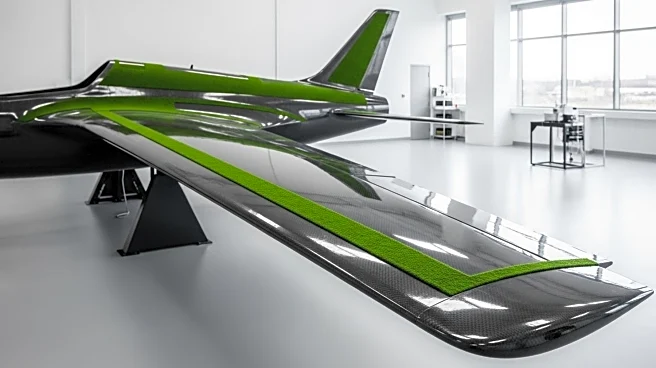What's Happening?
A research consortium led by the Technical University of Munich has developed a method to create carbon fibers from renewable microalgae, eliminating the need for petroleum-based materials. The GreenCarbon project aims to produce carbon fibers for various applications, including aircraft, vehicles, and wind turbines. The consortium includes Fraunhofer Institute, SGL Carbon, and Airbus. The process involves extracting oils from microalgae and converting them into acrylonitrile, a key component of carbon fibers. This innovation promises to reduce the carbon footprint of carbon fiber production significantly.
Why It's Important?
The development of carbon fibers from microalgae represents a major advancement in sustainable materials technology. By reducing reliance on petroleum, this method could significantly lower the environmental impact of industries that use carbon fibers, such as aerospace and automotive. The potential reduction in carbon emissions aligns with global efforts to combat climate change and transition to low-carbon energy solutions. This breakthrough could also drive innovation in other sectors, promoting the use of renewable resources in manufacturing.
What's Next?
The GreenCarbon project plans to scale up the production process for industrial applications, potentially replacing petroleum-based materials in various industries. Airbus has already conducted test flights using the new carbon fibers, indicating a path toward broader adoption in aviation. As the technology is optimized, it could expand into other sectors, further reducing the environmental impact of manufacturing processes and supporting the global shift toward sustainable practices.










